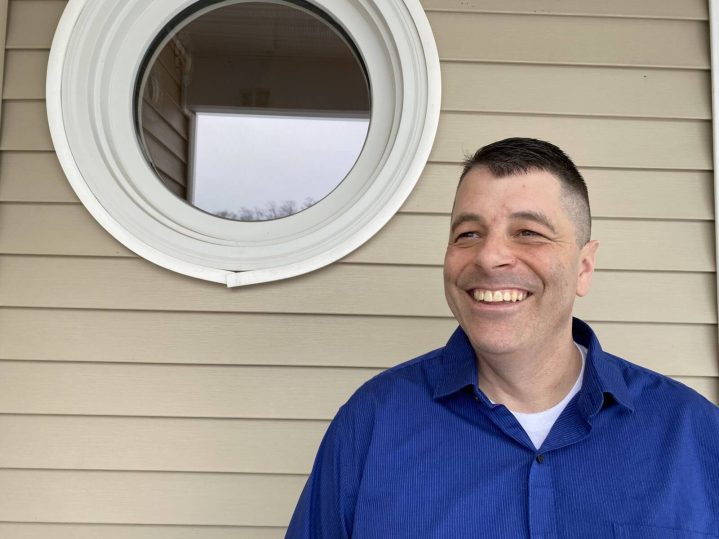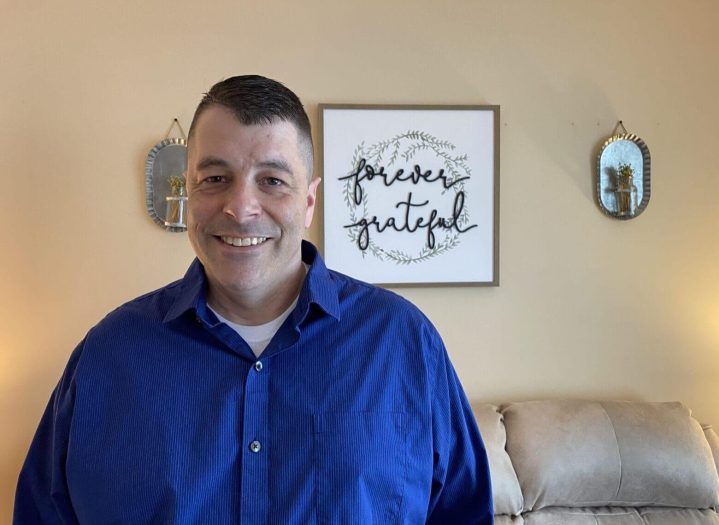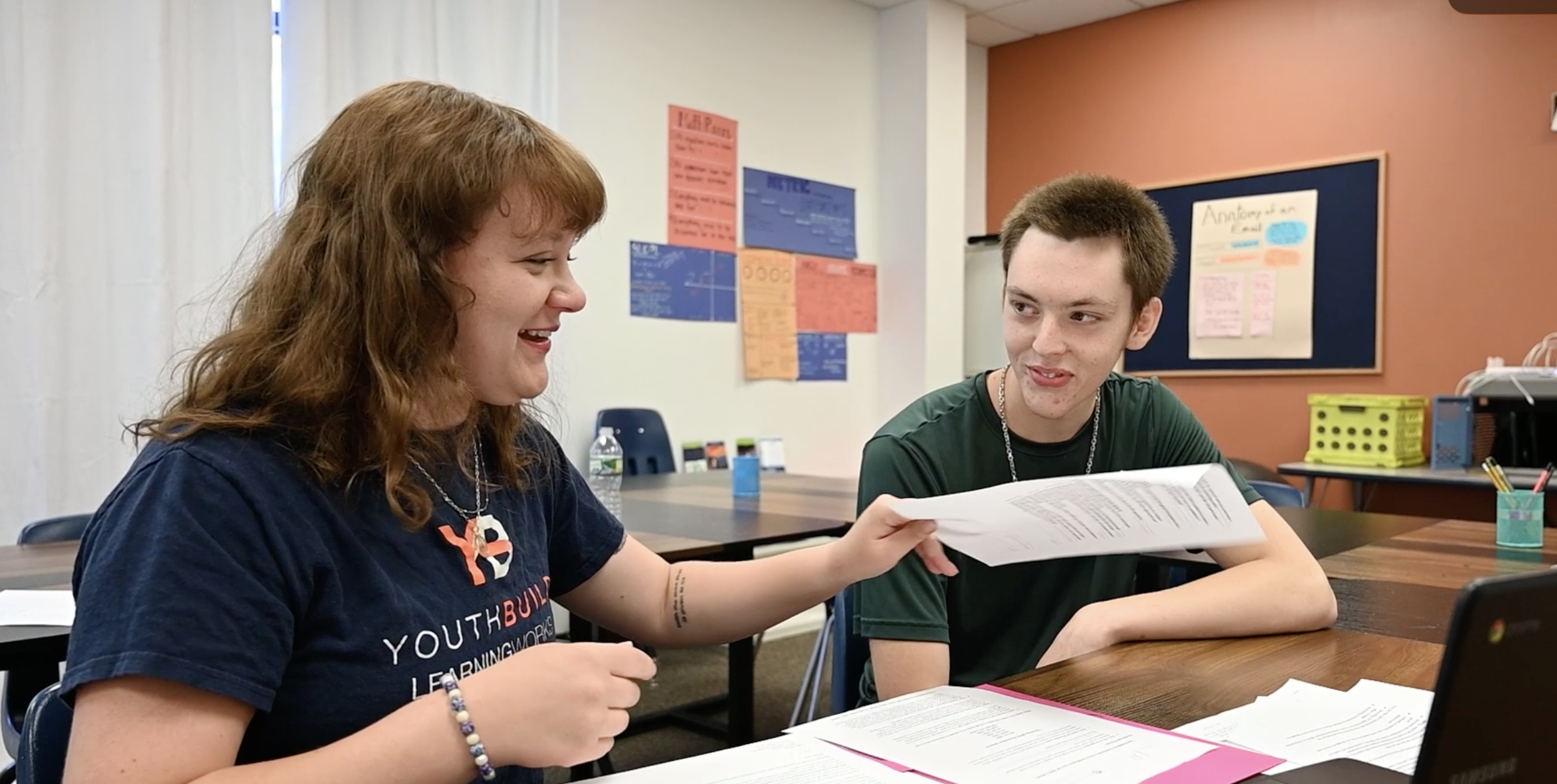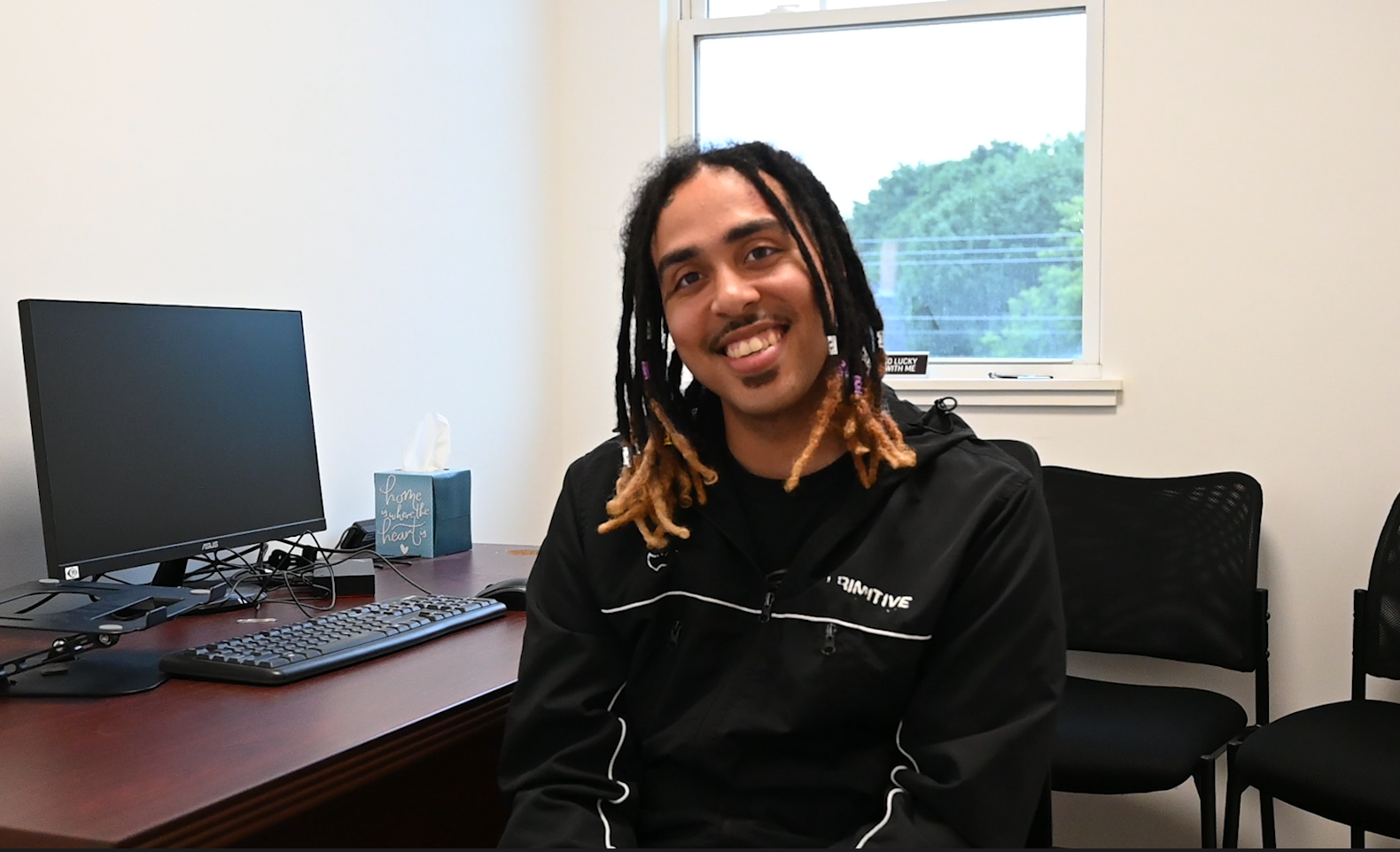Success Stories
Ben gets his dream job in healthcare after 8 years of sobriety, with help from Goodwill Workforce staff
April 23, 2021

When Ben Sawyer saw a flyer offering help to anyone affected by opioids, he jumped at the chance. By that point he’d been unemployed for eight months, and his unemployment benefits weren’t enough for his family of four. He needed work — and like many people who have battled addiction, he needed a second chance. Now, with some help from Goodwill staff, his job is his passion.
Sawyer, 45, of Gorham, Maine, has been sober for more than eight years. After serving in the Marine Corps he became a nurse in an emergency room. He loved helping people, but after he had a root canal surgery, the doctor prescribed a narcotic that swiftly became an addiction. He lost his job as a nurse because of the opioid addiction.
Sawyer then found a job at an insurance company in a cubicle. It wasn’t exciting, but it paid the bills and gave the newly sober man a routine and some stability, which was important. But come January 2020, it was time for something new. By that point he’d spent eight years going to 12-step meetings, helping others affected by addiction and seeing the power of recovery.

When he walked into Goodwill Workforce offices (virtually, that is), he thought it would be like a staffing agency, where they’d just send his resume out to insurance businesses around town. Instead, he connected to a career adviser and a life navigator. They helped him find where his skills and passion connect to employment that will help him and his family achieve personal stability. His life navigator Liz led him through an exercise that showed Ben where he uses his energy, which things stress him out, and which things feed him. That’s when they knew: No more cubicles.
“They said, ‘What do you want to do?’ and it wasn’t until then that I realized I want to work with addicts,” Sawyer said. “I’d been doing it. I’d work in an office during the day and at night I’d do the work in the recovery community helping others and doing the 12 steps. Michael (my career advisor) made an analogy: I’m Clark Kent by day and Superman at night. I said I think I’ve been Clark Kent long enough, I wanted to work with addicts. Little did I know it made a problem with the State of Maine – I was on a MaineCare exclusion list.”
Because of Sawyer’s history, he had surrendered his nursing license and was put on a MaineCare exclusion list. That prevented him from working in healthcare — including addiction work. His Goodwill team started looking for other jobs, just in case, but also helped him apply with the State of Maine to have that exclusion removed.
Within weeks of the appeal process, it was removed. That meant Sawyer could help people struggling with addiction — the work he had quietly been doing (and loving) on a volunteer basis since entering the recovery community.
Sawyer polished his resume and cover letters with help from his career adviser. Within a couple months of working with Goodwill staff, he had seven job call backs. He compared that to the two call backs he got between March and October trying on his own. “It definitely made a difference,” he said.
Within 48 hours of getting the exclusion lifted, Sawyer got a job offer from an addiction recovery business. Now he is a Certified Recovery Advisor and works with people battling addiction to give them the support they need to get and stay sober.
“That was the thing about Goodwill – they could have got me another insurance job, I had the resume for it, I could have done it, but the life navigator and career advisor wanted to help me do what I wanted and what they thought I would be better at – my passion. They said it’s time to let Superman out. We’ll see how well I fly,” he said. “I just thought Goodwill was a yard sale in a building. I had no idea – I knew it was a charity, but I didn’t know how much of a difference they could make. I equate walking into Goodwill to walking into a meeting with I started getting sober – there was a glimmer of hope and that’s all it took. Goodwill gave me my cape. They were the beacon of hope when I really needed it.”
Other ways Goodwill and Workforce Solutions were able to help Sawyer:
- -Refined his resume
- -Refined his cover letter (something nurses don’t tend to need)
- -Gave him a test to find where his skills and passions line up called the World of Work Inventory
- -Led him through an Eco Map exercise to assess where he puts energy in his life
- -Supported him with a Thanksgiving meal
- -Supported him with Christmas
- -Gave him Goodwill gift cards
- -Gave him gas cards so he could drive to his work sites until his first paycheck
- -Gave him a chair for his new office work (he has a hurt back)
- -Taught him about the technology many companies use to scan resumes, and helped him integrate keywords to market himself. As a result, he got seven call backs for jobs (when he tried alone from March-October he got two call backs)
The work Sawyer did was through Goodwill Northern New England’s Job Connection model, which marries the best practices of social work with workforce development – holistically helping each participant. This particular work was performed thanks to funding from the federal Workforce Innovation and Opportunity Act. That funding is overseen and managed locally by Coastal Counties Workforce, Inc. If you or someone you know would like help finding work, or getting career training, please contact us through this page: https://goodwillnne.org/jobs/workforceservices/ Maine was awarded a federal, dislocated worker grant to address the opioid crisis in December 2019. Called the Connecting with Opportunities Initiative, it provides financial support and one-on-one career guidance to unemployed individuals impacted by opioid use disorder (personally or indirectly). The goal is to help people obtain meaningful employment in a wide range of career fields. Assistance is available for education, training, skills development, the job search process and to address some of life’s needs & challenges. Connecting with Opportunities also provides support to non-impacted, unemployed workers who would like to go into fields related to substance use disorder/recovery, such as counseling, addiction treatment and mental health care. For any questions related to this grant, please contact Laurie McDonnell, Labor Program Specialist at the Maine Department of Labor: Laurie.E.McDonnell@maine.gov.



